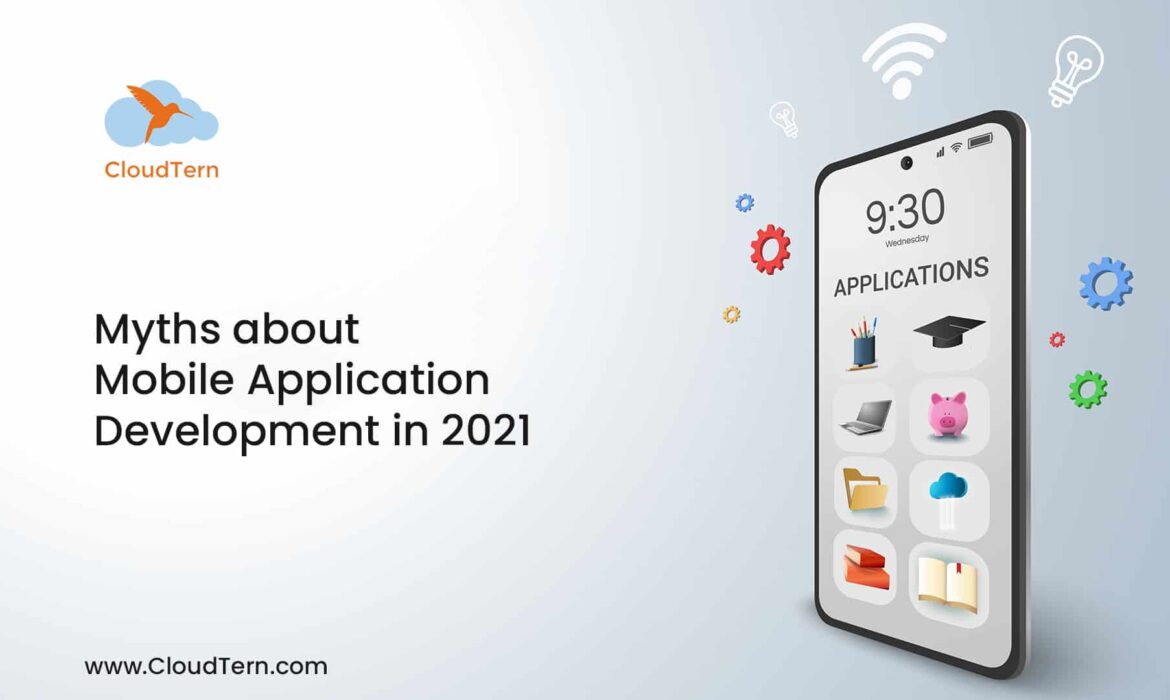 There are 6.37 billion smartphone users across the globe as of 2021 and this number is increasing at a rapid pace, reports Statista. For this reason, organizations are increasing building mobile applications to fully leverage this mobile revolution. Mobile apps allow organizations to proactively send push notifications to customers and keep them always connected with the company. Similarly, customers can access information about products and services in real-time. While businesses are aggressively building mobile apps, there are several misconceptions about developing them. Here are the most common myths about mobile app development in 2021.
There are 6.37 billion smartphone users across the globe as of 2021 and this number is increasing at a rapid pace, reports Statista. For this reason, organizations are increasing building mobile applications to fully leverage this mobile revolution. Mobile apps allow organizations to proactively send push notifications to customers and keep them always connected with the company. Similarly, customers can access information about products and services in real-time. While businesses are aggressively building mobile apps, there are several misconceptions about developing them. Here are the most common myths about mobile app development in 2021.
1) Mobile App Development is Inexpensive
The most common misconception about a mobile app is that it is cheaper when compared with regular software products. The reason for this myth is that mobile apps look smaller in size. However, it is important to understand that a mobile application goes through all the regular processes such as design, development, testing, production and maintenance and involves designers, developers, testers, analysts, network and operations professionals etc.
The cost of the app is based on the platform, supported languages, supported OS, security level, device types, number of screens, custom controls, and special functionalities such as in-app purchases etc. According to BusinessofApps, the cost of a basic app falls between $40,000-60,000 while a complex app costs more than $120,000. Similarly, the maintenance cost of the app would be 15%-20% of the actual development cost.
2) Mobile App Development is Easy
Another myth about mobile app development is that it is simple, easy and quick to build a mobile app considering the size and nature of a smartphone. However, it is not true. Whether you build a desktop application or a mobile app, every software project goes through the regular product development lifecycle comprising design, development, testing, marketing strategy, AppStore optimization, maintenance etc. Normally, it takes 3-6 months to build a minimal app while other apps that involve complex procedures take 1-2 years to be completed.
3) Mobile App development is just about Coding
When you think about a mobile application, the code comes first to mind. While coding is important for any software product, there are many more aspects involved in a mobile app development project. You need to create a mobile app strategy, marketing strategy, and a development plan that involves a number of stakeholders across the organization. Similarly, you can’t rewrite the code of an Android app and launch it iOS. The technology stack is completely different for both platforms which mean you need to begin it from scratch.
4) More Features make it a great App
One of the biggest misconceptions about mobile apps is that the more features you add to them, the better they become. However, the performance of the app doesn’t make it greater but the purpose it solves is what makes sense. Moreover, by stuffing multiple features into the app, you are actually increasing the complexity for users. The speed and performance of the app get affected as well. One of the important aspects to consider is the user interface. A good UI/UX design is sure to attract visitors.
5) A single App created by cross-platform frameworks serves all platforms
Today, there are multiple cross-platform frameworks available in the market that helps you to create cross-platform apps that run on both iOS and Android platforms. As such, there is a common myth that you can easily create an app using these frameworks and release it on both platforms. While it is true to some extent, applications that are built using cross-platform frameworks doesn’t automatically allow you to share code between Android and iOS platforms.
In today’s highly competitive world, businesses should always be in touch with customers, keep them updated with the latest happenings with regard to the company while being quick to tap new opportunities. Mobile apps provide the right platform to do so. However, choosing the right mobile app development strategy is the key here.
Contact CloudTern right now to build high-quality, high-performing Apps!



